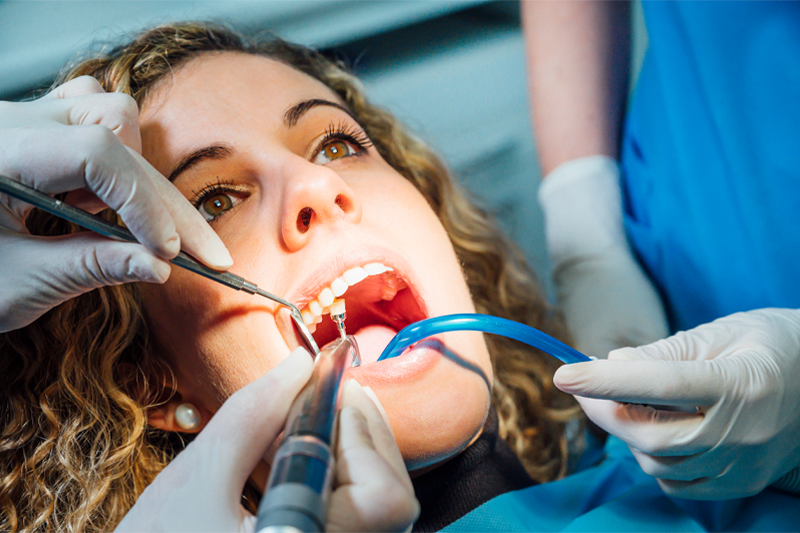Take Control of Your Dental Health with Dental Cleanings
With your hands full of personal, family, and job responsibilities, squeezing time for a dental appointment can fall by the wayside. Yes, we understand you brush and floss your teeth daily, but that’s not enough for your dental health. Since it’s practically impossible to reach every corner of your mouth with at-home oral hygiene, you need the help of a dentist to access the hard-to-reach spots in your mouth.
Has it been years since you last saw a dentist? It’s never too late to save your dental health. If you are a resident of Ridgewood, New Jersey and its environs, please schedule an appointment with Ridgewood Dentistry for professional teeth cleaning.
What to expect during a dental cleaning
We recommend professional dental cleaning every six months. However, if you are at risk of gum disease and cavities, you may need to see a dentist sooner. A dental cleaning or oral prophylaxis is one of the most straightforward procedures. The procedure begins with a dental exam. We examine your mouth physically and use dental x-rays to detect cavities, gum disease, tooth decay, and other dental problems. If we find issues, we will recommend corrective care before a dental cleaning.
If your oral health is in great shape, we can proceed with a prophy. We use an ultrasonic scaler to remove stains, plaque, and tartar on your teeth’s surface and beneath and above your gum line. The procedure may take 30-60 minutes, depending on how well you care for your teeth at home. Before letting you go, we polish your teeth to remove surface stains for a stunning smile.
We expect to see you in the next six months. But in between, brush and floss daily, and your next dental cleaning will be a bit quicker.
Benefits of Dental Cleanings
It’s easy to draw up a list of excuses to put off your dental cleanings. From a busy life to a dwindling economy, you have plenty of reasons to miss a dental exam. However, if there is something that’s gotta give, let it not be your smile. Routine dental cleanings offer many benefits, including:
- They prevent gum disease
- They fight off cavities
- Dental cleanings prevent bad breath
- They remove surface stains for a whiter smile
- They prevent costly and invasive restorative procedures
Routine dental check-ups are essential in preventive dental care — you can’t afford to skip them! Get started on the journey towards total oral health by dialing (201) 448-8605 to schedule an appointment with Dr. Warren Boardman. Ridgewood Dentistry will help you establish a strong foundation for a lifetime of good dental health.


